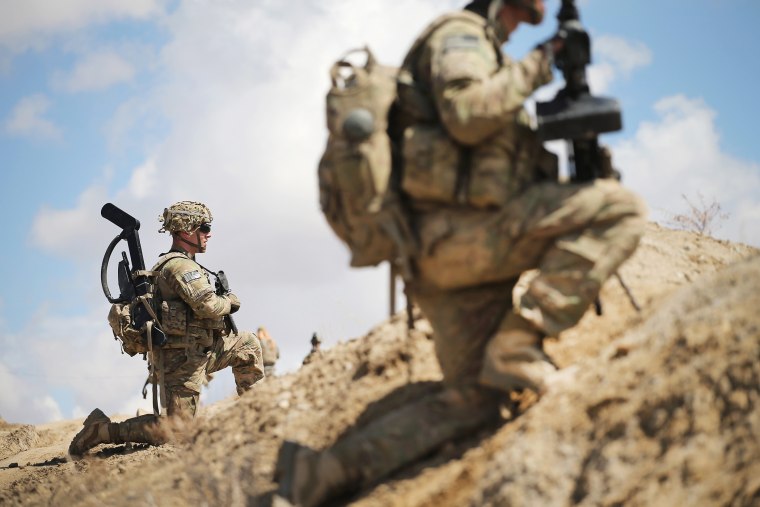It didn't get a whole lot of attention, but following up on a segment from last night's show, it seems the war in Afghanistan, in a way, ended yesterday.
American and NATO troops closed their operational command in Afghanistan on Monday, lowering flags in a ceremony to mark the formal end of their combat mission in a country still mired in war 13 years after the U.S.-led invasion toppled the Taliban regime for harboring those responsible for 9/11. The closing of the command, which oversaw the day-to-day operations of coalition combat forces, is one of the final steps in a transition to a support and training role that begins Jan. 1.
And why is it that the end of the U.S. combat mission, 13 years after the start of the war, passed largely without notice? Probably because the end of the war isn't really the end of the war.
As the AP report added, President Obama has already authorized U.S. forces in Afghanistan "to carry out military operations against Taliban and al-Qaida targets," which in a practical sense, means the longest war in American history will continue "for at least another two years."
In other words, yesterday was the technical end of a U.S. mission -- "Operation Enduring Freedom" is, in a literal sense, now over -- the current security agreement leaves roughly 10,000 American servicemen and women in Afghanistan indefinitely.
As Rachel noted on the show, "there's no date for them to come home," though the mission did get a new name: "Operation Resolute Support."
